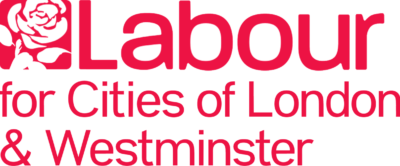In a major announcement on Friday 15 November, Labour set out plans to deliver fast and free full fibre-broadband for all by bringing parts of BT into public ownership and creating a new British Broadband public service.
Jeremy Corbyn made the announcement in Lancaster, describing the new free public service as central to Labour’s plans to transform our country and economy, “bringing communities together in an inclusive and connected society.”
The next Labour government will undertake a massive upgrade in the UK’s internet infrastructure, delivering fast, secure, reliable internet connections for everyone and putting an end to patchy and slow coverage. This will boost 5G connectivity across the country.
The roll out will begin with communities that have the worst broadband access, including rural and remote communities and some inner city areas, followed by towns and smaller centres, and then by areas that are currently well-served by superfast or ultrafast broadband.
The plan will be paid for through Labour’s Green Transformation fund and taxing multinational corporations such as Amazon, Facebook and Google, and save the average person £30.30 a month.
Parts of central London, Stroud, Tunbridge Wells and Canterbury were among the more surprising areas suffering from the worst broadband in the country, according to new Which? analysis of customer speed tests.
Speeds in Tower Hamlets (10.1Mbps), Westminster (10.8Mbps), Stroud (11.4Mbps), Tunbridge Wells (11.4Mbps), North East Derbyshire (11.5Mbps), and Canterbury (11.5Mbps) were also found to be lagging well behind other areas.
All the top areas average 3 times as fast Cities of London and Westminster.
Only 8-10 per cent of premises in the UK are connected to full-fibre broadband, compared to 97 per cent in Japan and 98 per cent in South Korea. Almost 80% of adults surveyed said that they have experienced internet reliability problems in the last year.
The party will also announce plans for a new Charter of Digital Rights – the strongest protection of data and online rights ever enacted. We will consult on its contents, which could include:
- Powers for individuals and collectives to challenge algorithmic injustice (where online algorithms cause disproportionate harms to particular groups);
- Powers for individuals and collectives to prevent the use of digital infrastructure for surveillance;
- Rights for individuals to protect access to and ownership of their data.
Alex Neill, Which? Managing Director of Home Products and Services, said:
“Having a good broadband connection is a basic requirement for many important everyday tasks, so it is unacceptable that millions of people around the country are still struggling to get what they need.
“The Government and the regulator must now press ahead with plans to provide a bare minimum connection speed of 10 Megabits in every household and make sure that no one is at a disadvantage because of where they live.”
You can check out the broadband speeds in your area (and any and all other UK areas) here
This current government won’t press ahead – we know this from their track record.
But a Labour government will.

